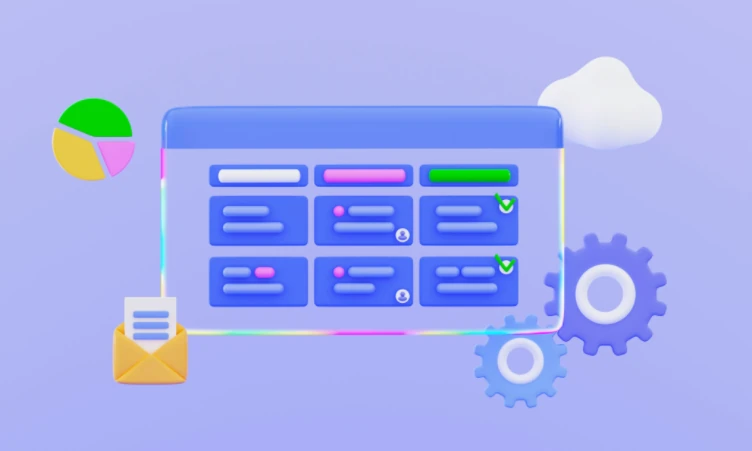Construction project cost management is a complex and challenging task. Projects often involve multiple stakeholders, a wide range of materials and labor, and dynamic budgets that need to be constantly monitored and adjusted. This can make it difficult to stay on track and within budget, without compromising on quality or safety.
That’s where construction cost management software comes in. This type of software provides a centralized and efficient solution for managing all aspects of construction project costs, from estimation and budgeting to resource allocation and real-time tracking. By automating many of the manual tasks associated with cost management, cost management software can help to streamline processes, improve accuracy, and reduce risk.
The Challenges of Construction Cost Management

Construction projects are inherently complex, requiring meticulous planning and financial oversight. From budgeting and estimation to resource allocation and real-time tracking, there are many factors to consider to ensure a successful outcome.
The complexity of construction projects is due to a number of factors, including:
- The large number of stakeholders involved: Construction projects typically involve a large number of stakeholders, including the client, the contractor, subcontractors, suppliers, and regulatory agencies. This can make it difficult to coordinate and manage all of the different interests and priorities involved.
- The dynamic nature of construction projects: Construction projects are constantly evolving, and unforeseen events can occur at any time. This can make it difficult to stay on track with the budget and schedule.
- The high degree of uncertainty: There are many factors that can contribute to uncertainty on construction projects, such as weather conditions, material availability, and labor costs. This can make it difficult to accurately budget for projects and predict when they will be completed.
Construction cost management software can help to streamline construction projects and improve the chances of success by providing a central repository for all project costs, automating tasks, and improving collaboration and communication.
The Role of Construction Cost Management Software

Construction cost management software provides a centralized solution for all aspects of project financial management. It can help users to:
- Create and manage detailed budgets
- Estimate costs accurately
- Allocate resources efficiently
- Track progress and spending in real time
- Manage documents and contracts
- Generate reports for strategic decision-making
Key Features of Cost Management Software
Here is a more detailed exploration of some of the essential features of construction cost management software:
- Cost Estimation: Accurate cost estimation is essential for setting realistic budgets and preventing overruns. Cost management software can help users to estimate costs based on historical data, industry benchmarks, and current market conditions.
- Project Budgeting: Once cost estimates are in place, cost management software can help users to create and manage detailed project budgets. This includes tracking spending in real time and identifying any potential variances early on.
- Resource Allocation: Construction cost management software can help users to optimize resource allocation for labor and materials. This includes forecasting demand, scheduling tasks, and tracking progress.
- Real-time Tracking: Real-time tracking is one of the most valuable features of cost management software. It allows users to see how their projects are progressing and identify any potential problems early on. This enables them to take corrective action before it’s too late.
- Document Management: Construction projects involve a lot of paperwork, from contracts and blueprints to invoices and receipts. Construction cost management software can help users to store and manage all of their documents in a centralized location, making them easy to access and share.
Notable Software Solutions
There are a number of popular construction cost management software solutions available today. Here is a brief overview of some of the most popular options:
- Contractor Foreman: Contractor Foreman is a cloud-based construction management software solution that includes a comprehensive suite of cost management tools. It offers features such as cost estimation, budgeting, resource allocation, and real-time tracking.
- Buildertrend: Buildertrend is another cloud-based construction management software solution that offers a robust set of cost management tools. It includes features such as cost estimation, budgeting, project scheduling, and document management.
- Avaza: Avaza is a time tracking and invoicing software solution that can also be used for construction cost management. It offers features such as cost estimation, budgeting, resource allocation, and real-time tracking.
- RedTeam: RedTeam is a construction management software solution that is designed specifically for small and medium-sized businesses. It offers features such as cost estimation, budgeting, project scheduling, and document management.
- EcoSys: EcoSys is a construction management software solution that is designed for large and complex projects. It offers a comprehensive suite of features, including cost estimation, budgeting, resource allocation, real-time tracking, and document management.
- Jonas Construction Software: Jonas Construction Software is a suite of construction management software solutions that includes a variety of cost management tools. It offers features such as cost estimation, budgeting, project scheduling, and document management.
Also Read: Understanding Preambles in Quantity Surveying
How cost management software can help the Construction

Construction cost management software can help streamline success in a number of ways, including:
- Automating tasks: Software can automate many time-consuming tasks, such as data entry and reporting. This can free up project managers and other team members to focus on more strategic tasks.
- Eliminating errors: Software can help eliminate errors in cost calculations and project tracking. This can lead to more accurate budgeting and forecasting.
- Improving communication: Software can facilitate communication between project stakeholders, helping to reduce misunderstandings and delays.
- Providing insights: Software can provide insights into project costs, performance, and risks. This information can help project managers make better decisions and improve project outcomes.
The Future Outlook
The future of construction cost management is bright, with new technologies and advancements emerging all the time. One of the most promising trends is the rise of artificial intelligence (AI) and machine learning (ML). AI and ML are promising technologies to automate many of the manual tasks involved in cost management, freeing up human workers to focus on more strategic initiatives.
Another trend to watch is the growing adoption of cloud-based construction cost management software. Cloud-based software offers a number of advantages over on-premises solutions, including scalability, affordability, and ease of use.
As the construction industry continues to digitize, we can expect to see even more innovative and effective cost management solutions emerge. Here are a few specific examples:
- AI-powered cost estimation: AI based estimation can provide more accurate and efficient cost estimation tools. By analyzing historical data and current market conditions, AI can help construction companies to identify potential cost risks.
- ML-driven resource allocation: ML based solutions can optimize resource allocation for labor and materials. By forecasting demand and scheduling tasks, ML can help construction companies to reduce waste and improve efficiency.
- Blockchain-based document management: Blockchain based systems can create a secure and transparent system for managing construction documents. This can help to reduce errors and improve communication between project stakeholders.
- Real-time data analytics: Real-time data analytics can provide construction companies with real-time insights into project progress and spending. This information can identify the root cause and address potential problems early on, before they cause major delays or cost overruns.
As technology continues to evolve, construction companies can expect to have access to more powerful and effective tools for managing their costs. This will help them to improve efficiency, reduce risk, and achieve better financial outcomes.
Conclusion
Construction cost management software is a powerful tool that can help construction companies of all sizes to streamline their operations, improve efficiency, and reduce risk. By choosing the right software solution, construction companies can achieve better financial outcomes and deliver their projects on time and within budget.

